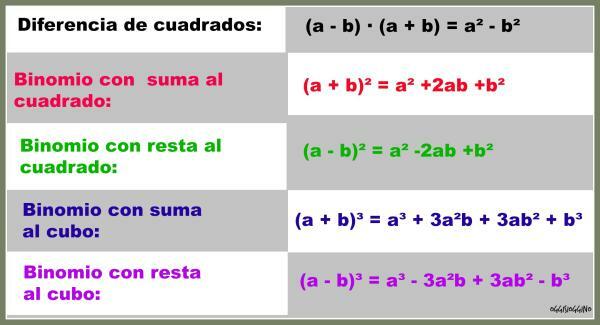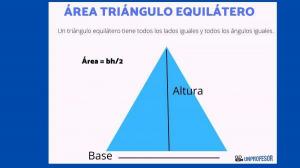What is a SQUARED BINOMIAL

We welcome you to this new lesson from a Teacher, in which we will help you understand what is a squared binomial and how can it be expanded. This knowledge is very important, since normally students are blocked with notable identities. In this way, we will see what a binomial is, which implies that it is squared, and then how to solve it. Also, to understand it better, we will analyze a couple of examples squared binomials and, in the last section, you will be able to test your knowledge. Of course, the solutions are at the end.
To begin with, we need to define the term binomial. As you may remember from other lessons, a monomialis that algebraic expression that contains literal variable unknowns (i.e. letters) and a number called coefficient. Monomials only have one term, because if there is an addition or a subtraction, it is a binomial.
Namely, A binomial is made up of two monomials joined by addition or subtraction. The point is that we can have that binomial squared and that is when the formulas of what are known as "remarkable identities" come into play.
Binomials, as follows from the above definition, can be of two types:
- sum binomial: are two monomials joined by a sum.
- Subtraction binomial: are two monomials joined by subtraction.
If we have a squared sum binomial, the formula we will use will be the following:
(a + b)2 = to2 + 2 * a * b + b2
If we have a squared subtraction binomial, the formula we will use will be the following:
(a-b)2 = to2 - 2 * a * b + b2
Note that the only thing that changes is that in front of the number two we will have a plus or a minus, but no other sign changes.

Let's see binomials squared example:
- We develop the binomial of the sum squared (5x + 3)2:
We use the formula (a + b)2 = to2 + 2 * a * b + b2 -> (5x + 3)2 = (5x)2 + 2 * 5x * 3 + 32 = 25x2 + 30x + 9
- We expand the subtraction binomial squared (8x3 - 2x)2:
We use the formula (a - b)2 = to2 - 2 * a * b + b2 -> (8x3 - 2x)2 = (8x3)2 - 2 * 8x3 * 2x + (2x)2 = 64x6 - 32x4 + 4x2
To check that you have understood what has been explained throughout this lesson about the squared Binomials, We recommend that you perform the proposed exercises:
1. Expand the binomial (4x + 10)2
2. Expand the binomial (2x4 - 1)2
3. Indicate whether the following sentences are true or false:
- A binomial is the same as a monomial.
- The formula of the squared binomial in case of addition and in case of subtraction only changes in the sign that is in front of the number 2, not in all the signs of the formula.
- To develop a squared binomial, we have to respect the hierarchical order of the operations, that is, first solve the parentheses, then the multiplications and finally the addition / subtraction.
Then we leave you the answer to the activities raised above, so you can check if you have done them correctly:
1. Expand the binomial (4x + 10)2
(4x + 10)2 = (4x)2 + 2 * 4x * 10 + 102 = 16x2 +80x +100
2. Expand the binomial (2x4 - 1)2
(2x4 - 1)2 = (2x4)2 - 2 * 2x4 * 1 + 12 = 4x8 - 4x4 + 1
3. Indicate whether the following sentences are true or false:
- A binomial is the same as a monomial: false, since a binomial is made up of two monomials.
- The formula of the squared binomial in the case of addition and in the case of subtraction only changes in the sign that is in front of the number 2, not in all the signs of the formula: true.
- To develop a squared binomial, we have to respect the hierarchical order of operations, that is That is, first solve the parentheses, then the multiplications and finally the addition / subtraction: real.
If you liked today's lesson, remember that you can share it with your classmates and you can continue browsing our tabs to read more interesting lessons.



